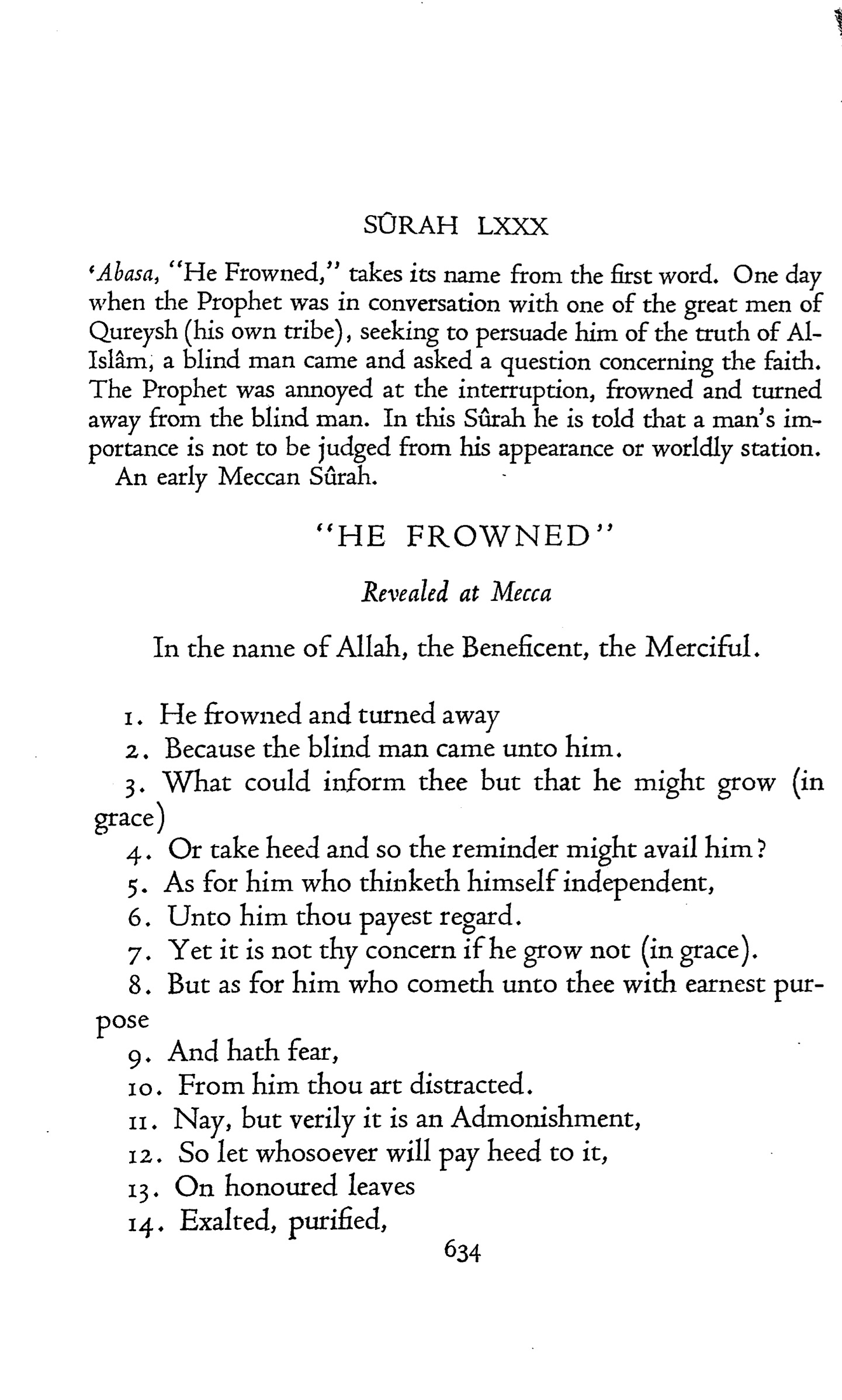Marmaduke Pickthall, The Meaning of The Glorious Koran. An Explanatory Translation (1930)
SÛRAH LXXX
‘Abasa, “He Frowned,” takes its name from the first word. One day when the Prophet was in conversation with one of the great men of Qureysh (his own tribe), seeking to persuade him of the truth of Al-Islâm, a blind man came and asked a question concerning the faith. The Prophet was annoyed at the interruption, frowned and turned away from the blind man. In this Sûrah he is told that a man’s importance is not to be judged from his appearance or worldly station.
An early Meccan Sûrah.
“He Frowned”
1. He frowned and turned away
2. Because the blind man came unto him.
3. What could inform thee but that he might grow (in grace)
4. Or take heed and so the reminder might avail him?
5. As for him who thinketh himself independent,
6. Unto him thou payest regard.
7. Yet it is not thy concern if he grow not (in grace).
8. But as for him who cometh unto thee with earnest purpose
9. And hath fear,
10. From him thou art distracted.
11. Nay, but verily it is an Admonishment,
12. So let whosoever will pay heed to it,
13. On honoured leaves
14. Exalted, purified,
